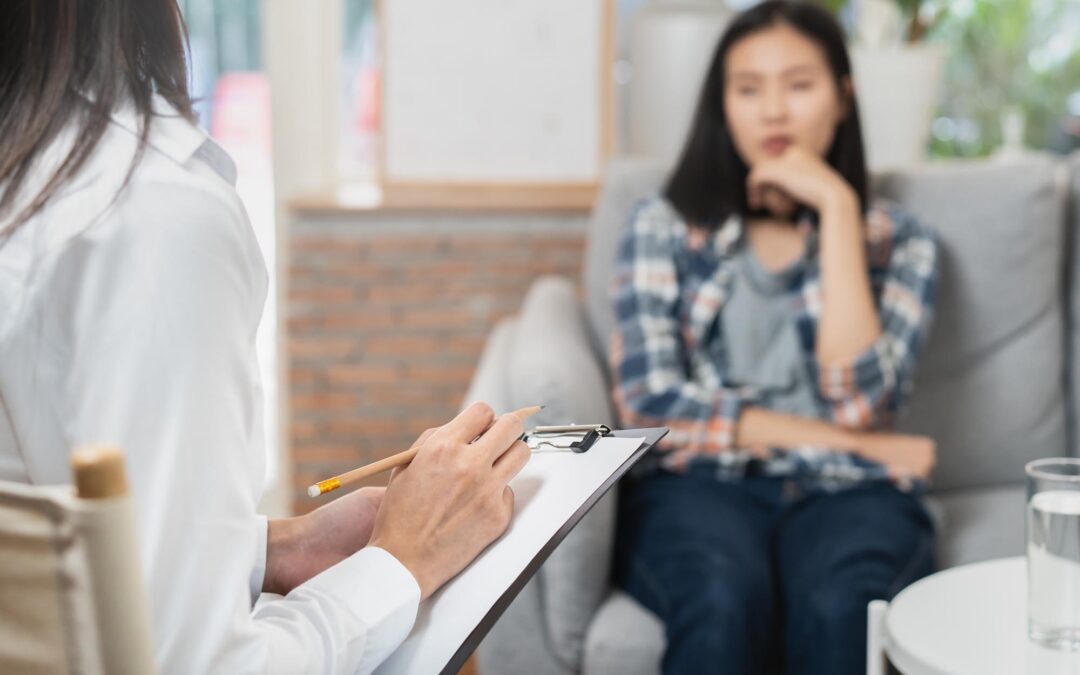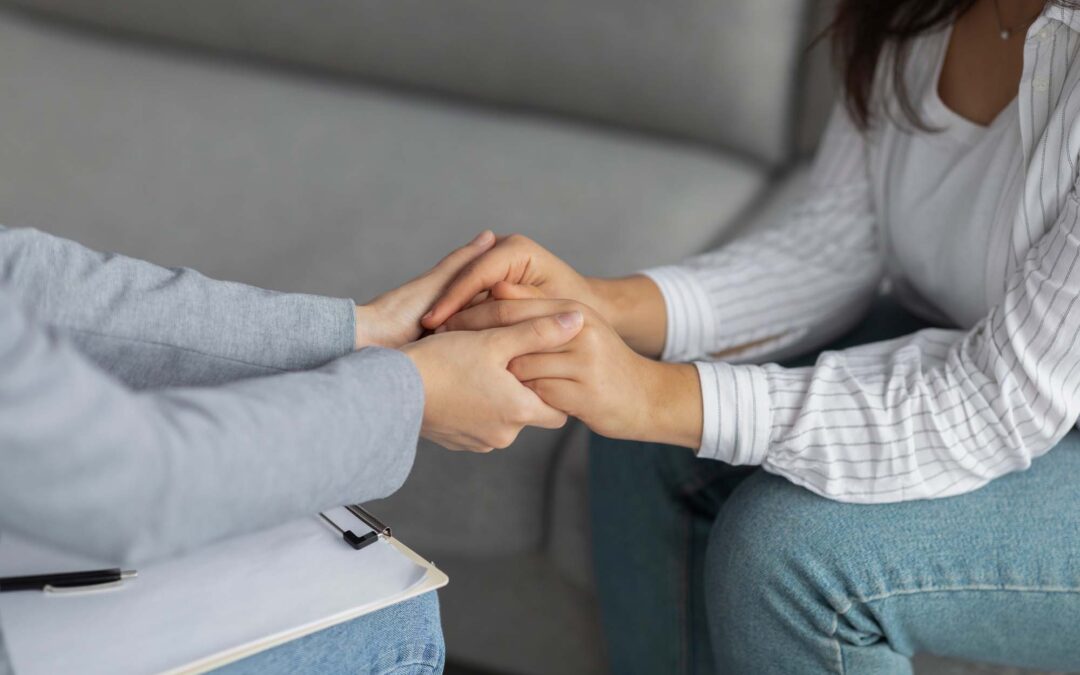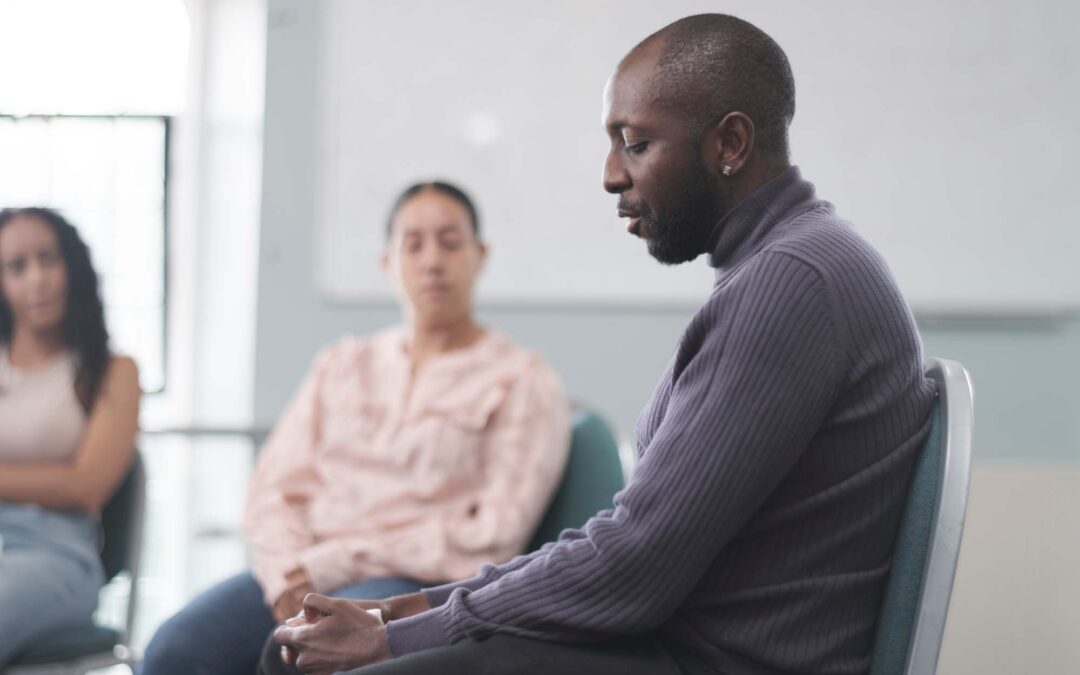Understanding Group Therapy
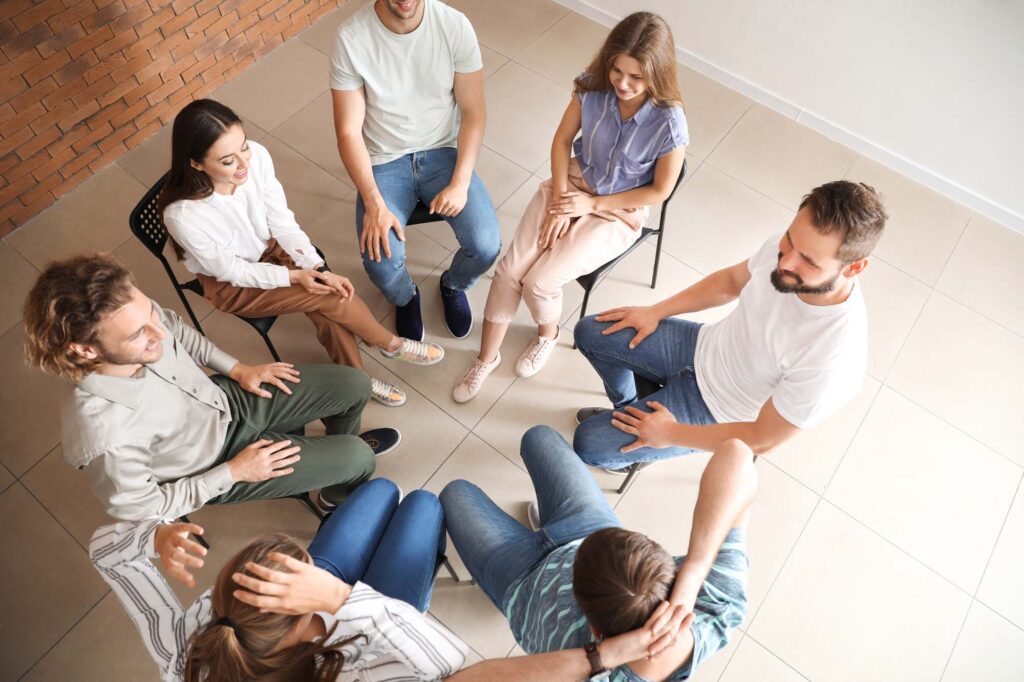
Group therapy is a type of psychotherapy where a small group of individuals, usually between 6 to 12 people, come together regularly to discuss their thoughts, feelings, and experiences. These sessions are led by trained therapists who create a safe and supportive environment for everyone involved.
How Does Group Therapy Work?
In group therapy, participants share their personal stories and challenges while also listening to others. This exchange of experiences can be incredibly powerful as it allows individuals to realize they are not alone in their struggles. The therapist’s role is to facilitate these discussions, ensuring that each member has an opportunity to speak and be heard.
Benefits of Group Therapy
Group therapy offers several benefits that can enhance the healing process:
- Peer Support: Being part of a group provides a sense of belonging and connection with others who are going through similar difficulties. This support system can help reduce feelings of isolation and provide validation.
- Learning from Others: Hearing about other people’s experiences and coping strategies can offer new perspectives and insights. It allows individuals to learn from one another’s successes and setbacks.
- Practice Social Skills: For those struggling with social anxiety or interpersonal relationships, group therapy provides a safe space to practice communication skills, assertiveness, and conflict resolution.
- Accountability: Sharing goals and progress with the group creates a sense of accountability. Knowing that others are aware of your aspirations can motivate you to stay committed to your personal growth.
- Cost-Effective: Group therapy is often more affordable than individual therapy sessions. It allows individuals to access professional support at a lower cost.
Is Group Therapy Right for You?
While group therapy can be beneficial for many people, it may not be suitable for everyone. Here are some factors to consider when deciding if this form of treatment is right for you:
- Comfort with Sharing: Group therapy involves sharing personal thoughts and feelings with others. If you find it difficult to open up or feel uncomfortable discussing certain topics in front of a group, individual therapy may be a better option.
- Specific Issues: Some concerns may require specialized attention that can be better addressed in one-on-one sessions. For example, trauma survivors or individuals with complex mental health conditions might benefit from personalized treatment approaches.
- Availability of Groups: Check if there are any local support groups or community organizations offering group therapy sessions related to your specific needs or interests.
It’s important to remember that seeking help is a sign of strength, regardless of the format you choose. Whether through individual or group therapy, finding the right support system can make a significant difference in your journey towards healing and self-discovery.
Group Therapy for Addiction: A Focused Approach
Group therapy for addiction creates a unique healing environment where individuals share their struggles with substance use. The group dynamic allows members to witness different stages of recovery, from early sobriety to long-term maintenance.
Key Elements of Addiction-Focused Group Therapy:
- Real-time feedback from peers who understand addiction’s complexities
- Shared strategies for managing triggers and cravings
- Direct confrontation of denial patterns common in addiction
- Development of healthy relationship skills damaged by substance use
The power of collective healing becomes evident as group members hold each other accountable. You’ll hear stories that mirror your experiences, helping you recognize you’re not alone in your challenges. This shared understanding builds trust and reduces the isolation often felt during addiction.
In these group settings, relapse prevention takes center stage. Members actively discuss risk factors, warning signs, and successful prevention techniques. Those further along in recovery serve as living proof that sustained sobriety is possible, inspiring newer members to persist through difficult periods.
The group environment naturally enhances motivation through:
- Celebrating recovery milestones together
- Learning from others’ setbacks and successes
- Building a support network outside formal therapy hours
- Practicing new coping skills in a judgment-free space
Each session strengthens your recovery toolkit as you absorb insights from multiple perspectives and experiences. The collective wisdom of the group becomes a powerful force in maintaining long-term sobriety.
Strategies to Engage Actively and Step Out of Your Comfort Zone
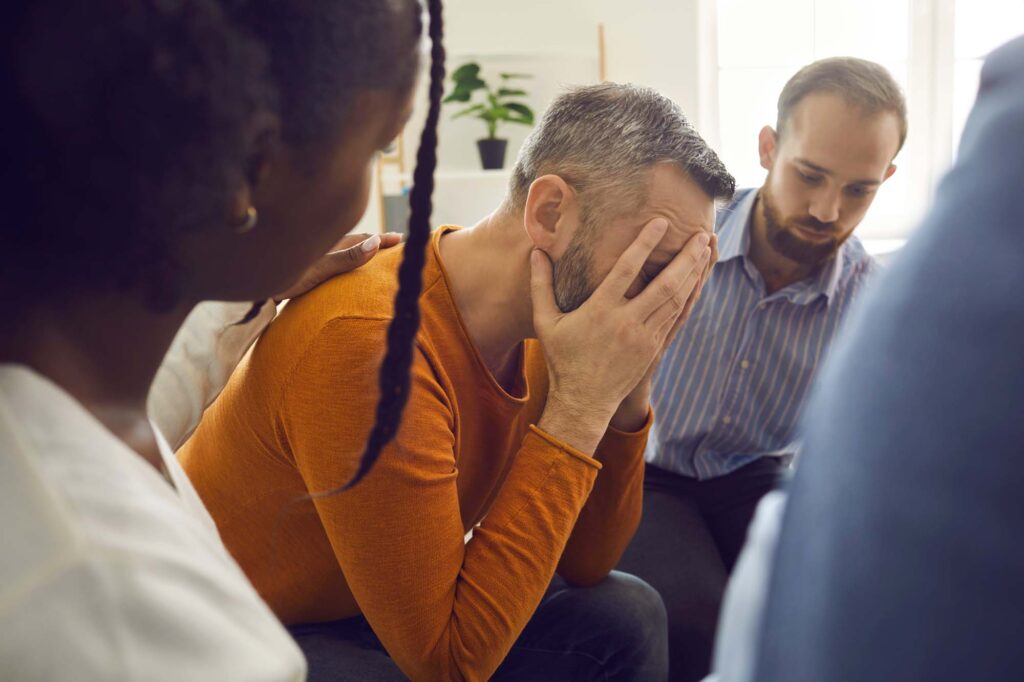
Active participation in group therapy requires courage and commitment. You’ll discover the true power of group therapy when you challenge yourself to engage authentically with others.
Break Through Barriers with Honest Sharing
- Share your genuine thoughts and feelings, even when it feels uncomfortable
- Start with smaller disclosures and gradually build trust
- Express both successes and struggles to create balanced participation
Push Your Boundaries Safely
- Practice new communication styles you’ve been hesitant to try
- Role-play challenging situations from your daily life
- Give and receive feedback from other group members
Transform Discomfort into Growth
Your initial hesitation or mistrust is natural – acknowledge these feelings openly in the group. When you voice your concerns, you create opportunities for deeper connections and understanding. Other members often share similar feelings, leading to meaningful discussions about trust and vulnerability.
Develop Genuine Curiosity
- Ask thoughtful questions about others’ experiences
- Notice patterns in how different members approach challenges
- Learn from diverse perspectives and coping strategies
Remember: each time you step outside your comfort zone, you strengthen your recovery skills and inspire others to do the same. Your willingness to take emotional risks creates a ripple effect, encouraging fellow group members to embrace vulnerability and growth.
Additionally, stepping into a leadership role within the group can be a powerful way to achieve difficult goals. This not only helps in personal growth but also inspires others to follow suit.
Effective Communication and Emotional Expression in Sessions
Mastering communication in group therapy creates deeper connections and accelerates personal growth. Here’s how to express yourself authentically while maintaining healthy boundaries:
Self-Disclosure Techniques:
- Start small – share brief experiences before diving into deeper emotions
- Use “I” statements to own your feelings
- Set personal boundaries by sharing only what feels comfortable
- Practice vulnerability gradually through structured exercises
Balanced Sharing:
- Mix challenging experiences with positive milestones
- Share recovery wins to inspire hope in others
- Acknowledge both struggles and progress
- Celebrate small victories within the group
Active Listening Skills:
- Notice your physical reactions during others’ shares
- Practice reflecting others’ emotions without judgment
- Take mental notes of shared coping strategies
- Pay attention to non-verbal cues
Your emotional awareness grows stronger through consistent practice in group settings. When others share similar experiences, you might notice physical sensations or emotional responses arising within you. These reactions offer valuable insights into your own healing journey.
Remember to honor your pace – some sessions you might share more, others less. The key is maintaining engagement while respecting your emotional capacity at any given moment.
Navigating Virtual Group Therapy Successfully
Virtual group therapy brings healing connections right to your home. Creating an optimal environment for these online sessions ensures you receive maximum therapeutic benefits.
Setting Up Your Space
- Choose a private room where others can’t overhear
- Use headphones for enhanced privacy and audio clarity
- Position yourself in good lighting so others can see your expressions
- Remove potential distractions like phones or nearby devices
Technical Preparation
- Test your internet connection 15 minutes before each session
- Keep your device plugged in or fully charged
- Download required software updates in advance
- Position your camera at eye level for natural interaction
- Have a backup device ready in case of technical issues
Mental Preparation
- Find a grounding activity 5-10 minutes before the session
- Write down key points you’d like to discuss
- Create a pre-session ritual like deep breathing or meditation
- Keep a notebook nearby for important insights
The virtual format requires different engagement strategies than in-person sessions. Make eye contact by looking directly at your camera when speaking. Use clear hand gestures to signal when you’d like to contribute. Pay attention to your body language – sit upright and maintain an open posture to stay present and engaged in the discussion.
In addition, consider leveraging technology’s benefits by incorporating digital tools that can enhance your therapy experience. For example, utilizing apps that promote mindfulness can be beneficial. It’s also essential to understand the importance of risk management when dealing with sensitive information during these sessions. Always remember to adhere to privacy regulations, ensuring that all discussions remain confidential and secure.
When and How to Ask for Help During Group Therapy
Seeking help in group therapy requires self-awareness and courage. You might need additional support when:
- Your emotions feel overwhelming during or after sessions
- You’re experiencing thoughts of self-harm
- Personal issues surface that require individual attention
- Progress feels stalled or you’re struggling to engage
Effective Ways to Ask for Help:
- Speak privately with your therapist before or after group sessions
- Use “I” statements to express your needs: “I’m struggling with…”
- Request feedback from group members about specific challenges
- Share your concerns during check-ins or closing rounds
Remember: asking for help demonstrates strength, not weakness. Your group therapy experience can be enhanced through direct communication with both therapists and peers. Many participants find that voicing their needs leads to deeper healing and more meaningful connections within the group.
Finding a Supportive Environment for Group Therapy in LA

Los Angeles offers numerous specialized addiction-focused group therapy options to support your recovery journey. Our experienced clinicians lead sessions designed to address your unique challenges and goals.
We provide:
- In-person sessions at our convenient West LA location
- Virtual therapy options for flexibility and accessibility
- Personalized guidance to match you with the right group
- Evidence-based treatment approaches
Ready to start your healing journey? Our team is here to help you find the perfect group therapy fit. Call us at [phone number] or visit our contact page to schedule a consultation. Your path to recovery starts with finding the right support system – we’re here to guide you every step of the way.
Whether you’re looking for strategies on maintaining sobriety or seeking more information about our group therapy sessions in Los Angeles, we are here to assist you.



